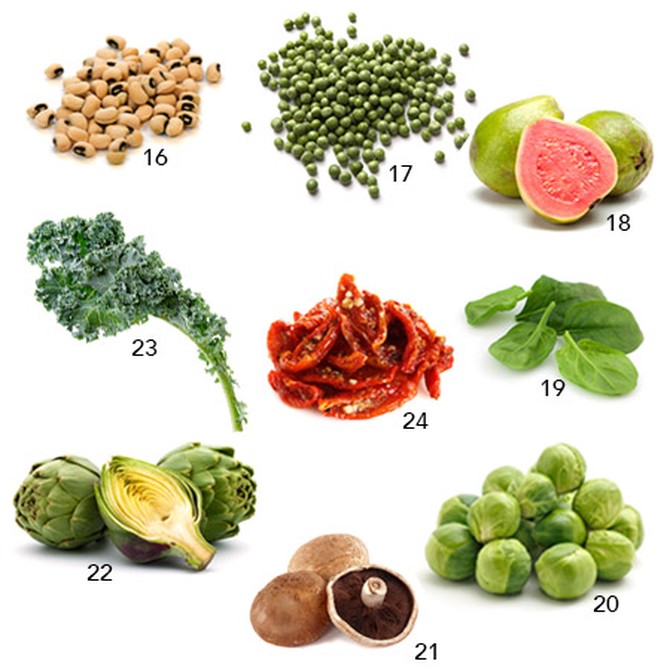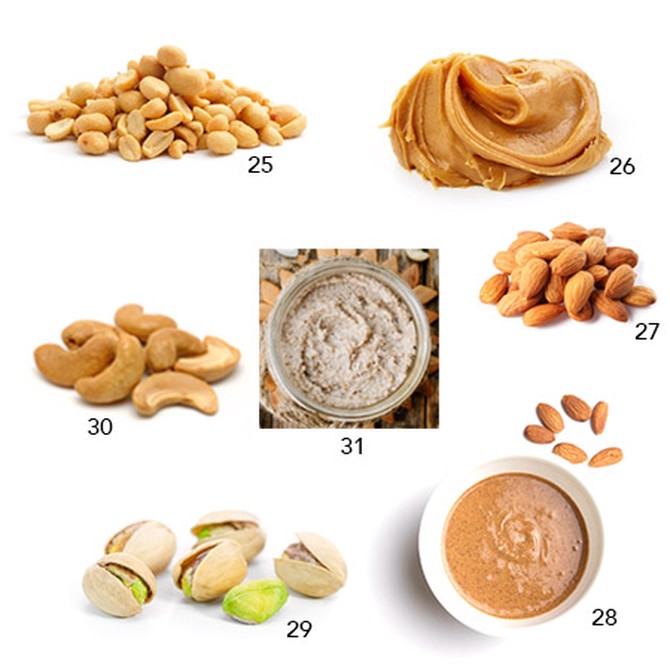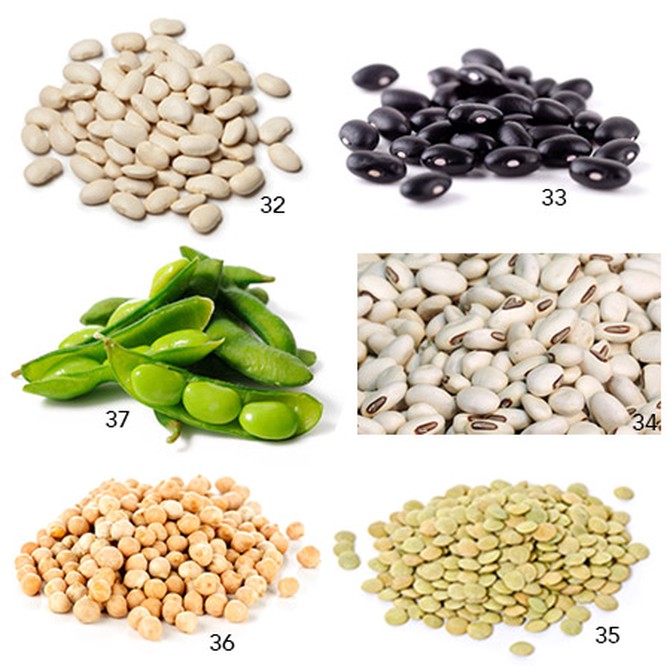37 Energizing, High-Protein Foods That Aren't Meat
Getting your fill of this essential nutrient just got a lot more interesting.
By Emma Haak

Photo: iStockphoto
Trying to picture a high protein meal or snack probably brings to mind a plate with a hefty portion of chicken, beef, or pork. But whether you’re a vegetarian, trying to cut back a bit on meat, or just sick of having chicken for dinner every night, protein-rich foods can be found far beyond the meat section of the grocery store. From grains and dairy products to vegetables (yes, they can have protein too) and nut butters, you have more options than you think.
The right amount of protein can vary based on your weight and activity levels, but the USDA recommendation of 46 grams per day for women 19 years and older is a good target to aim for. It’ll help you maintain your energy, rebuild your muscles after exercise, and keep your immune system humming along. And unlike fats and carbohydrates, your body doesn’t store protein, meaning it’s essential to get the recommended amount each day. Here are 37 surprising sources that make great additions to a healthy diet.
Great Grains
1. Spelt—10.67 grams in 1 cup, cooked
2. Teff—9.75 grams in 1 cup, cooked
3. Amaranth—9.35 grams in 1 cup, cooked
4. Quinoa—8.14 grams in 1 cup, cooked
5. Farro—7 grams in ¼ cup, uncooked
6. Buckwheat, the main ingredient in Japanese soba noodles—5.77 grams in 1 cup of soba noodles, cooked
7. Barley
Hulled—5.74 grams in ¼ cup, uncooked
Pearled—3.55 grams in 1 cup, cooked
8. Bulgur – 5.61 grams in 1 cup, cooked

Photo: istockphoto
In the Dairy Aisle
9. Cottage Cheese—11.81 grams in just 4 ounces of 2 percent milk fat cottage cheese
10. Greek Yogurt—9.95 grams in 3.5 ounces of plain, low-fat Greek yogurt
11. Eggs—6.29 grams in 1 large hardboiled egg

Photo: istockphoto
Small but Mighty Seeds
12. Pumpkin Seeds—8.8 grams in ¼ cup, roasted without salt
13. Sunflower Seeds—6.19 grams in ¼ cup, dry roasted without salt
14. Chia Seeds—4.69 grams in 1 ounce
15. Hemp Seeds—3.16 grams in 1 tablespoon, hulled

Left: istockphoto
Surprises in the Produce Section
16. Black Eyed Peas—5.23 grams in 1 cup, cooked
17. Green Peas—4.29 grams in ½ cup, cooked
18. Guava, the highest-protein fruit—4.21 grams in 1 cup
19. Spinach—4 grams in ¾ cup, cooked
20. Brussels Sprouts—3.98 grams in 1 cup, cooked
21. Portabella Mushrooms—3.97 grams in 1 cup grilled and sliced
22. Artichokes—3.47 grams in 1 medium artichoke, cooked
23. Kale—2.47 grams in 1 cup, cooked
24. Sun-dried tomatoes—1.9 grams in ¼ cup

Photo: istockphoto
Nuts, in Both Whole and Butter Form
25. Peanuts—9.42 grams in ¼ cup, raw
26. Peanut butter—7.11 grams in 2 Tbsp., smooth style without salt
27. Almonds—7.23 grams in ¼ cup, dry roasted with no salt added
28. Almond Butter—6.71 grams in 2 tablespoons, no salt added
29. Pistachios—5.72 grams in 1 ounce, raw (about 49 kernels)
30. Cashews—5.17 grams in 1 ounce, raw
31. Cashew Butter—5.62 grams in 2 tablespoons., no salt added

Photo: istockphoto
Get a Lot of Bang for Your Buck with Beans and Lentils
32. White Beans—17.42 grams in 1 cup, boiled without salt
33. Black Beans—15.24 grams in 1 cup, boiled without salt
34. Navy Beans—14.98 grams in 1 cup, boiled without salt
35. Lentils—13.39 grams in ¾ cup, cooked
36. Garbanzo Beans—10.7 grams in 1 cup from a can, drained and rinsed
37. Edamame—9.23 grams in ½ cup, frozen
Published 02/16/2016

